- Supplements
- Fat Burners
- Pre Workout Booster
- Testo Booster
- Ephedrine HCL
- ECA stack
- Yohimbine
- Prohormones
- SARMs
- Power
- Muscle
- Accessories
- Fat loss
- Diet
- Health
- Endurance
-
50€+ Order = Free Shipping
*AT & DE
Manufacturers
BESTSELLER
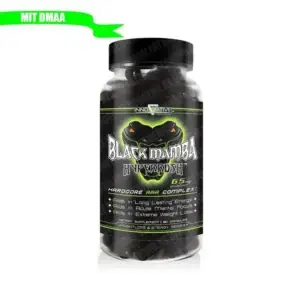
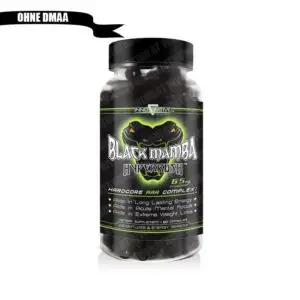
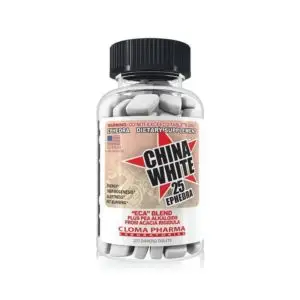

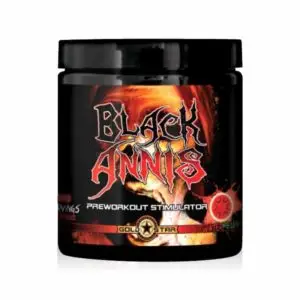
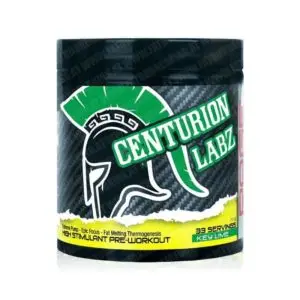
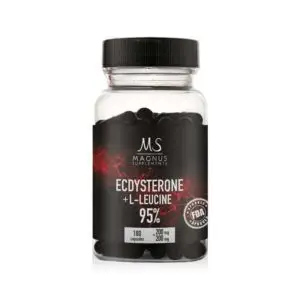
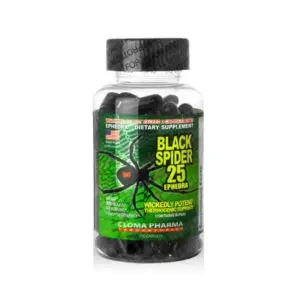
About
FATBURNERKING


Epithalon is a synthetically produced peptide whose origins lie in research into telomerase activation. Its chemical structure and history of discovery provide an exciting window into the biochemical mechanisms that may slow down ageing. In addition to its ability to activate telomerase, epithalon also supports cell regeneration and shows antioxidant effects.
Epithalon is a remarkable synthetic peptide based on the natural compound epitalamine, which is produced in the human pineal gland. It is considered a promising compound in the field of anti-ageing research and has attracted the attention of scientists worldwide. Epithalon is valued for its ability to delay and inhibit age-related changes in the body. Laboratory studies show that it can regulate circadian rhythms, promote deep sleep and improve vision. A key mechanism is its ability to slow the aging process by inhibiting telomere shortening, making it a potentially valuable resource in the fight against aging.
The chemical structure of epithalon reflects its close relationship with the natural polypeptide epithalamine. The chemical formula of the peptide is C₁₄H₂₂₂N₄O₉ and it has a molecular weight of 390.35 g/mol. The peptide sequence of Epithalon consists of the amino acids alanine (Ala), glutamic acid (Glu), aspartic acid (Asp) and glycine (Gly). The purity of Epithalon is at least 98%, which confirms its suitability for scientific studies and therapeutic applications. In addition, the molecule has a predicted density of 1.466 g/cm³.
This natural substance plays a crucial role in various biological processes, particularly with regard to ageing and cell regeneration. The activity of this peptide stimulates telomerase production, which in turn means that the regeneration of telomeres in human cells is promoted. At the same time, epithalon has strong antioxidant properties, which are important in protecting cells from oxidative stress. It also helps to regulate the circadian rhythm, promotes deeper sleep and improves neuronal function in older people.
One of the most prominent mechanisms of epithalon is the activation of telomerase. This enzyme activity plays a crucial role in preventing telomere shortening, which is associated with age. Telomeres, the protective caps of chromosomes, shorten with each cell division, which ultimately leads to cellular ageing. Epithalon inhibits this shortening, which slows down ageing and reduces the risk of age-related diseases. In laboratory studies, epithalon has been shown to induce telomerase activity, which contributes to telomere elongation in human somatic cells. This activity is crucial for cell regeneration and homeostasis and shows how epithalon can influence the ageing process at a fundamental cellular level.
Epithalon promotes cell regeneration mainly by stimulating telomerase activity and lengthening telomeres. This elongation in human somatic cells is crucial for the restoration and maintenance of healthy cell function. In addition, Epithalon optimizes cellular functions by regulating regenerative processes, including melatonin production in the pineal gland. This harmonious restoration of melatonin levels contributes to the maintenance of a normal circadian rhythm. Scientific research also shows that epithalon can influence a delay in cell aging in animal oocytes, further highlighting its role in aging research. As a tetrapeptide, epithalon is an indispensable tool for the study of cellular aging processes and the promotion of regeneration.
Another significant aspect of epithalon is its antioxidant effects, which help protect against age-related changes in the body. The peptide improves circadian rhythms and promotes deep sleep, which supports its antioxidant capacity. Remarkable discoveries have been made in laboratory studies, such as the improvement of vision through antioxidant processes, underlining the outstanding antioxidant properties of this peptide. Epithalon shows the ability to slow down the telomere shortening process, which is essential for cellular protection and delaying ageing. Through its antioxidant properties, epithalon also influences age-related diseases by slowing down the aging process at the cellular level, thus improving the overall protection of the organism.
Epitalon is particularly valued for its ability to delay age-related changes in the body. A key benefit of epithalon is its effect on telomeres in human somatic cells. This peptide may be of particular interest to athletes and people who want to improve their longevity. These structures at the end of chromosomes play a crucial role in the ageing process, as their shortening with age typically leads to cell damage. Epithalon inhibits this shortening process and thus contributes to delaying the ageing process. In addition, it has antioxidant properties that can prevent cell degradation and shows a neuroprotective effect by activating certain ribosomal genes. Studies suggest that epithalon may also reduce mortality rates by improving neuronal discharge in old age.
Epithalon plays a significant role in improving sleep quality by restoring and normalizing melatonin production in the pineal gland. Melatonin, a hormone that regulates the sleep-wake cycle, is stimulated by Epithalon, especially during the evening hours, which significantly increases melatonin levels. This improved hormone production helps to normalize the daily hormonal circadian rhythm in the blood plasma. Studies have shown that subjects treated with Epithalon had melatonin levels more than three times higher than the control group. Epithalon also contributes to the normalization of daily cortisol concentrations in the peripheral blood, which also helps to improve sleep quality. Epithalon can therefore help to restore a disturbed sleep rhythm to a normal, healthy level. In contrast to melatonin, the difference is that this peptide increases its own production in the dark.
The regulation of melatonin production is a key benefit of Epithalon, which can contribute to a significant improvement in sleep quality. Epithalon helps to optimize the function of the pineal gland by boosting the production of melatonin. Studies have shown that treatment with Epithalon led to a threefold increase in melatonin levels in the test subjects compared to the control group. This increase in melatonin levels promotes the nocturnal release of the hormone and thus supports a healthy sleep-wake cycle.
By increasing melatonin production, Epithalon can also positively influence the normal daily rhythm of cortisol production. Cortisol is a hormone that also intervenes in the sleep-wake rhythm. Balanced cortisol production helps to prepare the body for the demands of everyday life and enables restful sleep. The normalization of these processes by Epithalon leads to a significant improvement in sleep quality.
The use of Epithalon has been shown to be an effective approach to increasing melatonin levels in the evening hours, which can significantly improve not only sleep duration but also sleep quality. By expanding the body's melatonin levels and promoting natural hormone balance, Epithalon effectively contributes to the body's recovery and renewal during the night.
The neuroprotective benefits of Epithalon are extensive, as it improves neuronal discharge in the elderly and in patients with lower brain activity. With its antioxidant properties, epithalon protects neural tissue from cell damage. Furthermore, the peptide influences stress-induced changes in nSMase activity in the cerebral cortex. These properties enhance the proliferative activity of thymocytes under stress conditions, which is particularly valuable as it supports IL-1beta signaling in neural tissue by efficiently controlling stress-induced changes.
Epithalon also provides benefits to the immune system by enhancing the proliferative activity of thymocytes under stressful conditions. Thymocytes are important cells involved in regulating and supporting the immune response. Epithalon targets the proliferation of these cells in nervous tissue, influences the stress-induced changes in nSMase activity and thus supports the protective effect at the signaling level of IL-1beta. This supportive effect is crucial for maintaining a healthy immune system, especially under stressful conditions, thus improving the body's overall health and resilience.
Epithalon is a peptide that is gaining more and more attention in research due to its many potential benefits in anti-ageing treatments. The correct application of Epithalon is not so easy to specify, as research is not yet 100% advanced enough to make reliable statements. It has only been possible to observe effects at certain dosages. One of the effects of Epithalon is to activate telomerase, which inhibits the process of telomere shortening and thus slows down the ageing process. In addition, it influences the function of the pineal gland, which can support the regulation of the circadian rhythm. It also modifies gene expression associated with the cellular ageing process, which could bring about lasting positive changes in tissue. The quality and safety of Epithalon products are ensured by adhering to strict standards such as GMP, HACCP and ISO 13485.
There are some high-quality Epithalon products - for example from BPS Pharma. There are specific dosage recommendations for researchers working with Epithalon. For Model A, a daily dose of 200-400 mcg is recommended, while for Model B a slightly higher dose of 400-600 mcg daily is suggested. These dosages are based on experimental model studies and should be maintained under laboratory conditions. It is recommended that the application be carried out over a period of 10 to 20 days, followed by a break of 4 to 6 months. This cyclic administration helps to optimize the effect without overloading the peptide. When administering Epithalon, care should be taken to administer the doses at regular intervals and to take the circadian rhythm into account. This helps to ensure an even distribution and effect of Epithalon in the body.
Epithalon is a promising compound that has gained attention in recent years due to its potential anti-ageing properties. It is increasingly being researched to better understand its effects on cellular processes and potential side effects. While the studies to date highlight many positive effects of Epithalon, there is currently limited specific information on its side effects. Researchers continue to study the effects of Epithalon on the human body to gain a more complete picture of its safety and efficacy.
Current background information on Epithalon does not contain specific information on known side effects. However, there is significant evidence that Epithalon offers numerous health benefits. It promotes telomerase activity and prevents telomere shortening, which in turn prolongs cell life. Epithalon has also been reported to regulate circadian rhythms and boost visual function and the immune system.
Another positive effect of Epithalon is the improvement of sleep quality, especially the promotion of deep sleep, which is essential for physical recovery. In addition, there are reports of its role in aiding hair revitalization in cases of hair loss. While these benefits are promising, the exact effect of Epithalon on the human body continues to be the subject of intense research.
Epithalon, a synthetically produced peptide, is attracting increasing interest from the research community, particularly due to its potential ability to activate telomerase in human somatic cells. Telomerase is an enzyme that can lengthen telomeres - the protective caps at the end of chromosomes. This could be linked to a slowing down of the ageing process. Initial studies show that Epithalon has minimal side effects; however, careful monitoring of biochemical parameters is recommended. In long-term studies, the peptide has proven to be well tolerated, although researchers must ensure that sufficient breaks are taken between administration cycles. Epithalon is also used in combination with other peptides in order to better understand regenerative and immunological processes.
Research on epithalon focuses in particular on its ability to slow down cellular ageing processes. One of the most significant discoveries is its effect on telomerase activity. Telomerase is an enzyme that plays a key role in protecting telomeres, the ends of chromosomes that shorten with each cell division. Studies with fibroblast cultures show that Epithalon is able to activate this enzyme, thereby extending telomere length and increasing the lifespan of cells.
In animal studies, Epithalon showed an impressive ability to support chromosome stability and reduce the frequency of chromosomal mutations. This suggests that Epithalon as an anti-aging agent has the potential to slow down the aging process by improving cellular homeostasis. In addition to the study in somatic cells, studies with oocytes were also carried out, which also confirmed positive effects and protection against age-related damage.
Epithalon is mainly used as a reagent for chemical analyses and is specially designed for scientific research.
The Epithalon TFA catalog no. is available for high-quality products and selected fine chemicals that provide the desired products. The practical application forms include a convenient nose spray and a kant en klaar spray.
Boundaries of Epithalon:
Despite its promise, further research is needed to understand its full potential and possible long-term effects. Most studies have been conducted in the laboratory and comprehensive clinical trials in humans are lacking.
In summary, Epithalon offers promising benefits, particularly in the area of anti-ageing and the regulation of our natural sleep rhythm. It remains to be seen to what extent Epithalon can help us in the anti-ageing process.
© copyright 2018-2025 Fatburnerking.at
| Cookie | Duration | Description |
|---|---|---|
| cookielawinfo-checkbox-advertisement | 1 year | This cookie is set by the GDPR Cookie Consent Plugin and is used to record the user's consent for the cookies in the "Advertising" category. |
| cookielawinfo-checkbox-analytics | 11 months | This cookie is set by GDPR Cookie. The cookie is used to store user consent for cookies in the "Analytics" category. |
| cookielawinfo-checkbox-functional | 11 months | The cookie is set based on the consent of the GDPR cookies to record the user's consent for cookies in the "Functional" category. |
| cookielawinfo-checkbox-necessary | 11 months | This cookie is set by GDPR Cookie. Cookies are used to store the user's consent to the storage of cookies in the "Necessary" category. |
| cookielawinfo-checkbox-others | 11 months | This cookie is set by GDPR Cookie. The cookie is used to store the user's consent for cookies in the "Other" category. |
| cookielawinfo-checkbox-performance | 11 months | This cookie is set by GDPR Cookie. The cookie is used to store user consent for cookies in the "Performance" category. |
| CookieLawInfoConsent | 1 year | Records the default button status of the corresponding category and the status of CCPA. It only works in coordination with the primary cookie. |
| elementor | never | This cookie is used by the website's WordPress theme. It allows the website owner to implement or change the content of the website in real time. |
| viewed_cookie_policy | 11 months | The cookie is set by the GDPR cookie and is used to store whether the user has consented to the use of cookies or not. It does not store any personal data. |
| Cookie | Duration | Description |
|---|---|---|
| ssupp.vid | 6 months | Cookie set by Smartsupp to record the visitor ID. |
| ssupp.visits | 6 months | Cookie set by Smartsupp to record the number of previous visits, necessary to track automatic messages. |
| Cookie | Duration | Description |
|---|---|---|
| _ga | 2 years | The _ga cookie installed by Google Analytics calculates visitor, session and campaign data and also tracks website usage for the website analytics report. The cookie stores information anonymously and assigns a randomly generated number to identify unique visitors. |
| _gat_gtag_UA_179465762_1 | 1 minute | Set by Google to distinguish users. |
| _gid | 1 day | The _gid cookie installed by Google Analytics stores information about how visitors use a website and at the same time creates an analytics report about the website's performance. Some of the data collected includes the number of visitors, their source and the pages they visit anonymously. |
| tk_ai | 5 years | JetPack sets this cookie to store a randomly generated anonymous ID that is only used in the administration area and for general analytics tracking. |
| tk_lr | 1 year | The tk_lr is a referral cookie set by the JetPack plug-in on websites using WooCommerce that analyses referral behaviour for Jetpack. |
| tk_or | 5 years | The tk_or is a referral cookie set by the JetPack plug-in on websites using WooCommerce that analyses referral behaviour for Jetpack. |
| tk_qs | 30 minutes | JetPack sets this cookie to store a randomly generated anonymous ID that is only used in the administration area and for general analytics tracking. |
| tk_r3d | 3 days | JetPack installs this cookie to collect internal metrics for user activity to improve the user experience. |
| tk_tc | Session | JetPack sets this cookie to record details of how users use the website. |
| Cookie | Duration | Description |
|---|---|---|
| _fbp | 3 months | This cookie is set by Facebook to display ads after visiting the website, either on Facebook or on a digital platform powered by Facebook Ads. |
| fr | 3 months | Facebook sets this cookie to display relevant ads to users by tracking user behaviour on the web, on websites with Facebook Pixel or Facebook Social Plug-in. |
| Cookie | Duration | Description |
|---|---|---|
| cookies.js | Session | No description available. |
| weglot_wp_rocket_cache | Session | No description |